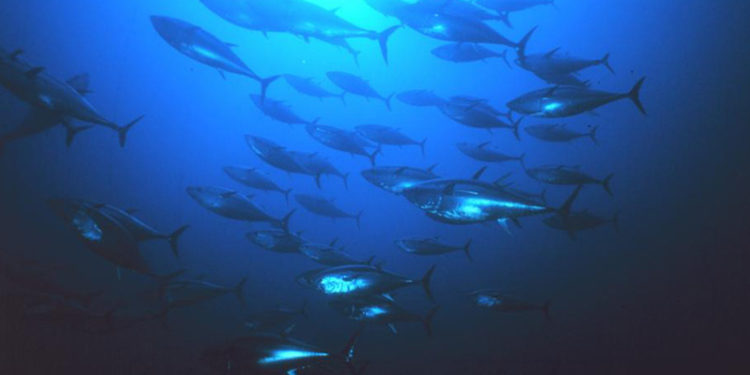Small-scale fishing organisation LIFE has welcomed the European Commission’s recognition that coastal artisanal fishing fleets should benefit from the reallocation of Bluefin tuna quota in a fair manner across all European fleets, and the proposal to reintegrate this marginalised sector into the Bluefin tuna fishery.
‘It is high time that coastal artisanal fisheries were included in the strategy to manage fishing effort, conserve stocks and distribute the benefits from the recovering Bluefin tuna resources in an equitable manner,’ said LIFE’s Brian O’Riordan.
DG Mare plans to move from a recovery to a management plan for Eastern Bluefin tuna were revealed last week in a meeting ahead of next month’s ICCAT annual meeting.
This plan is to be constructed around three broad objectives of management and conservation, socio-economic inclusion, and inspection and control. DG Mare officials highlighted that in strengthening the recovery of Bluefin tuna, controls need to be improved, especially the sale and laundering of illegal catches.
Brian O’Riordan commented that the ICCAT preparations were overshadowed by the announcement of criminal proceedings by Europol against 79 individuals involved in the illegal catching and trade of bluefin tuna all along the value chain from catching through transhipment and fattening to marketing, across Italy, Malta, France and Spain.’
Recovery
Despite such significant and unquantified decades long criminal activity across the bluefin tuna industry, the eastern bluefin tuna has staged a remarkable comeback in the last ten years. This provides solid grounds for moving from a recovery plan to a management plan,’ he said and commented that DG Mare noted that there remains a considerable risk of overfishing due to black markets and a lack of transparency in the transhipment of fish between catching and intermediary vessels and tuna fattening units.
‘LIFE is happy to note that DG Mare is ready to grasp the opportunity provided by the recovery of bluefin tuna stocks and the increase in the TAC allocated to Europe from ICCAT to end the unfair discrimination against small-scale low impact fishing activities, to alleviate the economic difficulties experienced by many small-scale fishers, and to take the pressure off other fish stocks in the Mediterranean,’ he said.
The strategic importance of bluefin tuna to alleviate the general state of overexploitation in the Mediterranean, in line with the 2017 MedFish4ever Declaration and the 2018 Regional Plan of Action for Small-scale Fisheries in the Mediterranean and Black Sea signed by 18 Mediterranean and Black Sea coastal states, can’t be underestimated. Central to these new instruments are the equitable access to living marine resources based on sustainable fisheries and their socioeconomic role and the granting of preferential access for sustainable and low impact small scale fisheries along the coastal band.
Fair allocation
‘LIFE calls for a fair proportion of the annual increase of quota to be allocated, directly from ICCAT and ring-fenced, to small scale and low-impact fisheries that comply fully with the current Monitoring, Control and Surveillance (MCS) framework. For this to happen, it is first necessary to define artisanal coastal fisheries. LIFE insists that such a definition must first and foremost be based on the use of low impact gears, specifically hook and line techniques using hand lines and/or pole and line; hand line and pole and line gears have the lowest impact on the environment and least by-catch compared to other gears that target bluefin tuna.’
He said that LIFE also welcomes the elimination of the five-tonne cap on the small-scale fleets as this will provide a more inclusive basis for these to benefit from the increased tuna quotas distributed to Member States. However, this does not fully protect small-scale fishing from the negative impacts of tradeable quotas and marginalisation resulting from market-based quota allocation mechanisms.
‘A specific clause to prohibit transferability should be included to ensure that new quota transferred to Member States for coastal artisanal fishing is non-transferable to other fleet segments including purse seiners and large-scale long-liners,’ he said.
‘LIFE is also concerned that allowing a variation of 20% in the adjustment of fishing capacity for purse seiners is too high and strongly recommends maintaining fishing capacity in line with the TAC. The proposed extension of the purse seine season must also be taken into account in this regard.’
He added that LIFE advises that the minimum size provisions shouldn’t change from the previous recommendations and should not be weakened by any minimum size derogation, to prevent targeting of smaller juveniles.
‘Finally LIFE would like to stress that there should be no increase of allowed by-catch from 5% from Rec 14-04 up to 20%, such an increase is tantamount to allowing a targeted catch of bluefin tuna,’ Brian O’Riordan said.
‘LIFE looks forward to working with the European and national institutions to level the playing field of opportunities between large and small-scale operators, and to ensure an equitable flow of benefits across the fleet segments, whilst maintaining healthy bluefin tuna stocks.’









